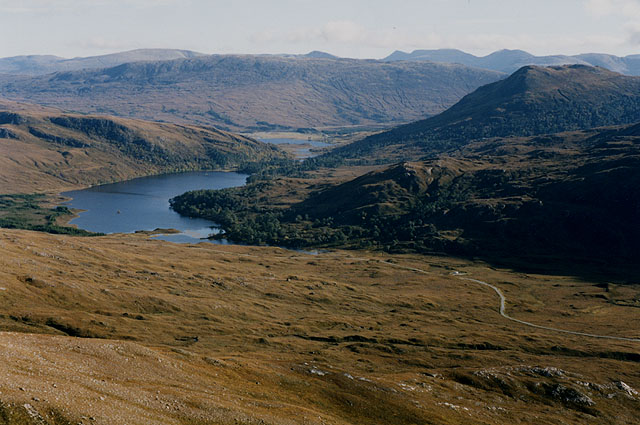
By Dominic Hinde
In its nine years in power, Scotland’s Scottish National Party (SNP) government has sought to redefine many areas of how the country is governed. In many fields, from healthcare to education, the party has attempted to create a specifically Scottish approach to issues that contrast strongly with policies in England and Wales. The problem, though, is that the Scottish way is not necessarily better.

The Scottish approach is linked firmly to ideas about the environment from the 20th century and earlier, with environmental protection extending to national parks and attempts to safeguard Scotland’s unique environmental assets through measures including marine protected areas and landscape preservation. On this the Scottish Government has a relatively good record, and it has been keen to emphasise the importance of safeguarding Scotland’s landscapes and coastlines as part of its green credentials at each election.
Nationalist movements and environmental activism are no stranger to one another – in many post-colonial countries protection of or control of natural landscapes forms an integral part of liberation politics. In the early 1990s Plaid Cymru and the Green Party jointly elected an MP in Wales on a platform of environmental protection, rural development and self-determination. One of the most rhetorically high profile projects of the SNP was the Year of Natural Scotland (2013), a year-long nominal celebration of Scotland’s natural assets in which the Scottish Government also established an official Scottish national tree. The Year of Natural Scotland typifies the general conceptual route taken by the SNP, in which nature can be pigeon-holed separately from their plans for the economy and country as a whole, often being used as a national marker.
The problem is that this type of environmental policy – which is typified by the approach taken to conservation by older lobby groups such as the John Muir Trust and RSPB – is only one element of the necessary environmental change needed in the globalised 21st century.
One of the guiding principles in modern environmental policy making is the concept of resilience – this means building buffers into economies and ecosystems alike so that society as a whole can survive shocks. Done properly, resilience as a concept can be implemented in housing, transport, environment policy and economic development. The holistic approach to government that resilience researchers claim is needed is entirely lacking from Scotland, which instead focuses on the hard-to-define concept ‘sustainable growth’. Although the Scottish government has established an agency devoted to resilience, their understanding of the term relates mostly to disaster planning. It does not seek to cover any long term analysis of the way in which the Scottish economy and Scottish environment are – and will continue to be – affected by large scale economic and environmental change worldwide.
The Scottish oil industry is a perfect example of this – despite having formed the backbone of SNP plans for independence, the government has done little to increase the resilience of both Aberdeenshire and the country as a whole to cope with the inevitable end of North Sea oil production and a decline in price.
Likewise, the SNP have consistently missed their targets for carbon reduction and chosen to pursue policies – including a huge roadbuilding program, cuts to rail projects and reduction in the tax on air travel – which will demonstrably increase carbon emissions. What is lacking in Scotland compared to other developed countries such as Sweden is a perspective that sees environmental sustainability as a social and technological challenge that must reach into every corner of the economy and be felt in every corner of the land.
The SNP are doing a good job according to antiquated conceptions of what the environment is and how it works, but until the key concepts of resilience and sustainability are understood across all areas of government, Scotland will likely fail to realise its public image as a green, clean and modern nation.
Read Dominic’s article ‘It’s Our Environment: Two Terms of SNP Environmental Policy’ in Scottish Affairs, 25.1: The SNP in Government, 2007–2016. 
Dominic Hinde is an environmental journalist and environmental humanities researcher, affiliated to the University of Edinburgh. His present research focuses on the future of environmental journalism within global systems and the communication of dynamic environmental change.
Image credit: Lower slopes of Sgùrr Ban by Nigel Brown via Wikimedia Commons





